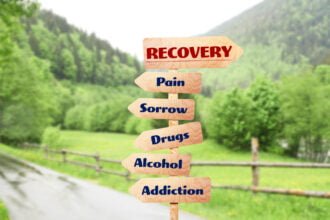If you have just joined an outpatient rehab, making the most of your time should be your biggest priority. People enter such facilities every day. However, they don’t always get their desired results. Even though there are tens of thousands of rehab facilities in the United States, none of them can help if you aren’t determined to get better.
Thanks to addiction and rehab treatments’ vulnerability and personal nature, giving your best is easier said than done.
Here are a few tips to ensure that you get the most from outpatient rehab.
Determine If You Are Ready for Treatment
This is arguably one of the essential steps. You will get more from your experience at an outpatient rehab if you think you are ready. If, however, you enter the facility against your will, you are unlikely to gain much.
Check into an outpatient rehab when you have examined your life and concluded that you have a problem. You should be willing to adjust your lifestyle.
If you are still in denial, take time to prepare for treatment first. When you conclude that you have a problem and want to turn your life around, you are ready for rehab. It may take some time to acknowledge this reality, and not everyone does. Before attempting to change your life, it is vital to know where you stand.
Deliberately Practice the Skills You’re Learning in Rehab While You’re At Home or Work
You may sometimes feel incapable of recovery. Most people think that recovery needs immense strength and willpower that they do not have. However, you can fully recover if you deliberately practice the skills you are learning in rehab after discharge.
You can do this by redefining fun. Research indicates that you may glamorize your past experiences with substances and think about them longingly when you are under stress. You may also begin thinking that recovery is challenging and addiction is fun.
However, cognitive behavior therapy offered at reputable rehab facilities such as Cornerstone Healing Center helps you accept that addiction is worse, although recovery can be challenging.
You can also use other skills such as socialization to build better relationships or friendships.
These relationships should be able to provide adequate support as you recover. Most recovering addicts, especially younger ones, often face insecurities and social anxieties.
Therefore, applying social skills can improve self-confidence and make connecting with other people easier.
Don’t Give in to Distractions While in Treatment
While in rehab, the most important person you need to focus on is yourself. Some of the distractions you may encounter might be relationships with other clients and the drama arising from them.
You must understand that you are the only person capable of making fundamental transformations in your life. No other person can apply the skills you acquire in rehab to your aftercare treatment on your behalf. However, you might find this challenging if you spend most of your treatment time distracted by unnecessary issues.
You should always ask questions to find out why some things are structured in a certain way. Remember that all the staff in the rehab facility are there for your benefit. They are ready to offer any assistance and explain various activities’ ideas and their contribution to your recovery.
Avoid Thinking You Are Better than Other Individuals in the Program
In most instances, addicts think they are above everyone else because they drink alcohol or any other drug. This means they don’t think they have a problem and do not need to be in a rehab facility with other individuals.
Due to this belief, you may miss out on numerous chances to connect with peers and acquire valuable information. Having your nose in the air will only do nothing but harm the situation.
Although it can take a while, you should realize that addiction does not discriminate. Addiction is addiction, no matter what someone is addicted to or the duration of their addiction. It can affect anyone regardless of their background.
Willingness to find out the root of your problems will make it easier to begin your journey to recovery. Recovery starts with the admission that you are not alright and require help. Since this theme is present throughout the recovery process, becoming comfortable with being uncomfortable is vital.
Recovering from an addiction problem and maintaining sobriety is a lifelong process. If you or your loved one is struggling with addiction, it is crucial to find a rehab facility capable of laying the foundation necessary for a permanent recovery.
An excellent rehab center should offer essential life skills such as time management, developing healthy routines, establishing healthy coping mechanisms, and building healthy relationships or friendships.
After discharge from the rehab facility, you can apply these skills to prevent relapse. They are also crucial in living a more rewarding and fulfilling life without drugs.










